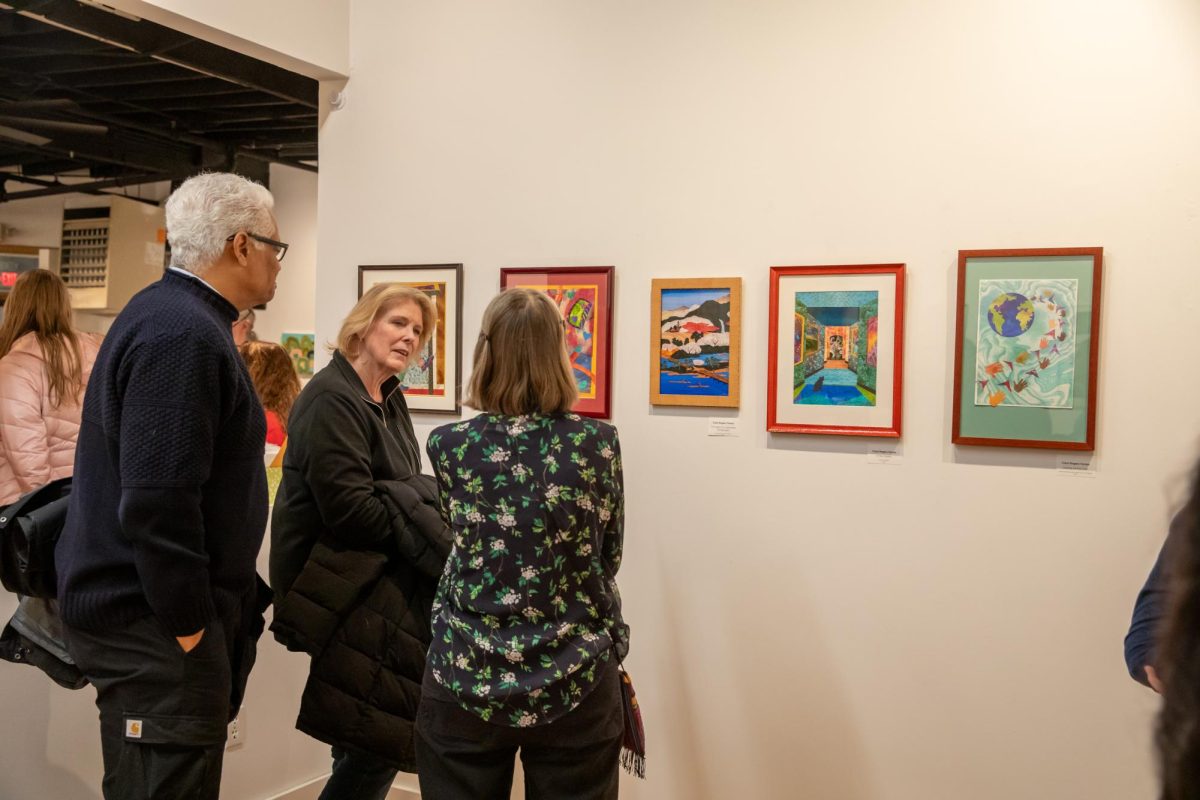Nicolaus CopernicusâÄô epiphany, the idea of a heliocentric universe, was suppressed for many years before he could publish his groundbreaking book about the subject.
Obstacles, namely religion, deeply affected his decision to release the manuscript. One young man fought to convince Copernicus to go against the established thought.
A young German mathematician named Georg Joachim Rheticus sought to publish CopernicusâÄô secretive book, forever altering humanityâÄôs view of the heavens.
To communicate the drama surrounding the decision to publish, author and science historian Dava Sobel marries historical information with a play called âÄúA More Perfect Heaven: How Copernicus Revolutionized the Cosmos.âÄù
In the play, Sobel highlights Rheticus and CopernicusâÄôs dialogue. Sobel, known for illuminating works of actual accounts, often takes artistic liberties to transmit the science down to human elements.
âÄúItâÄôs an unusual approach. People will either love it or hate it,âÄù she said.
So far, Sobel has garnered praise for shedding light on John Harrison, who created the first clock to determine longitude at sea, incredibly important for navigators in the 18th century. âÄúLongitudeâÄù sparked SobelâÄôs career in creating stories from technical subjects in science.
âÄúThe work that Copernicus did challenged, literally, 2,000 years of accepted theory,âÄù Sobel said. âÄúSo anytime somebody is willing to break with tradition that way, thatâÄôs very interesting.âÄù
SobelâÄôs new book employs the same technique in science communication. Dramatic elements play a harmonizing role within âÄúA More Perfect Heaven,âÄù a unique challenge that Sobel overcomes.
âÄúI had a lot of trouble giving myself the freedom to make up things. For the play to be dramatic and interesting, they couldnâÄôt just discuss astronomy theory,âÄù Sobel said. âÄúThings had to happen. There had to be conflict.âÄù
Controversy like CopernicusâÄô relationship with his housemaid or Rheticus being accused of sexual deviance with a student accompanies the broader theme of religionâÄôs overarching dominance surrounding the Polish astronomerâÄôs revolutionary theories.
âÄúIn the dioceses where Copernicus lived, the bishop had banished Lutherans. So it was against the law for [Rheticus] even to be in the town. And somehow they finagled and kept him there for two years,âÄù Sobel said. âÄúThe historical record is silent on how that happened.âÄù
For Sobel to get around numerous gaps in history, she presented her play in a university setting first to decide whether these liberties were justified or superfluous.
âÄúI thought the best venue for my play would be a university theater department. ThereâÄôs so much to the story: ThereâÄôs astronomy, history, religious studies, mathematics,âÄù Sobel said. âÄúThey could have a grand interdisciplinary project to put the theater department together with all of these other departments.âÄù
The personal, societal and religious aspects to SobelâÄôs book, detailing CopernicusâÄô enormous struggle for scientific acceptance amid the religious community, are still eerily relevant.
Sobel brings subjects like Nicolaus Copernicus alive and stimulates interest.
Sobel said, âÄúThe more people can relate to the science being discussed, the more natural interest and excitement for the subject.âÄù







